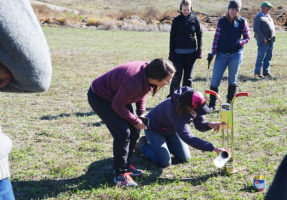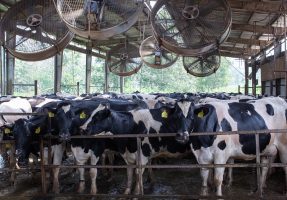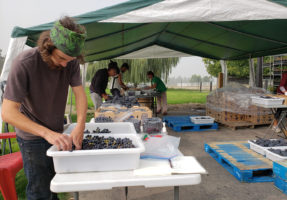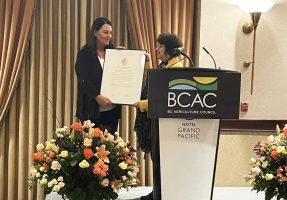BC’s minimum wage has increased to $15.65 an hour effective June 1, a 2.8% increase from $15.20 last year.
The increase was announced in March and reflects the annual inflation rate for 2021. Piece rates for hand-harvesters will rise by a similar percentage on January 1, 2023.
The increase adds to input costs farmers face, which have been rising dramatically. While the cost of consumer goods in BC were rising at an annual rate of 4% in the latest month (April), industrial product prices increased 16.4%.
“This was a scheduled increase which we appreciate being able to plan for. Being able to prepare for significant inflation is tough, though,” says Danielle Synotte, executive director of the BC Agriculture Council. “All of the increasing input costs decreases farmers returns.”
The increase in the minimum wage raises worker expectations right across the board, making it particularly significant.
“It has that snowball effect,” she says. “As minimum wage increases, there’s an expectation that other wage levels will also increase. … It’s more than just a minimum wage increase, it’s an all-round increase to all positions.”
According to Statistics Canada, approximately 8% of BC’s workforce receive minimum wage. The offered rate for new farm workers was $16.30 an hour at the end of 2021, well above minimum wage.
Synotte notes that the baseline mileage rate published by the Canada Revenue Agency has also increased two cents to 61 cents per kilometre, adding to employment costs.
“You’re seeing these significant jumps in all of these little things that really add up to quite a bit,” she says. “It’s total compensation, not just about income – [it’s] all these other little pieces that play into what it costs to employ people.”














 73,500 birds hit by AI
73,500 birds hit by AI